Hyundai IONIQ 6 VS Tesla Model Y
In the growing electric vehicle market, the Hyundai IONIQ 6 stands out with its sleek design and impressive range, positioning itself as a strong competitor to the Tesla Model Y. While the Model Y offers superior performance and an expansive charging network, the IONIQ 6 appeals to budget-conscious buyers with its competitive pricing and advanced tech features. Ultimately, both cars cater to different customer preferences, making the choice between them a matter of lifestyle and priorities.
Hyundai IONIQ 6
The Hyundai IONIQ 6 merges futuristic design with eco-friendly technology, offering a glimpse into the future of electric mobility. Its sleek silhouette and aerodynamic profile are sure to capture attention on the road, while the interior provides a seamless blend of comfort and cutting-edge digital features. With a focus on efficiency and sustainability, this model represents a significant step forward in the evolution of electric vehicles.
detailsTesla Model Y
The Tesla Model Y stands out in the electric vehicle market with its sleek design and impressive range. Its interior is minimalist yet stylish, offering a spacious cabin that enhances the driving experience. The Model Y also features advanced technology, including an intuitive infotainment system, making it a leader in innovative motoring.
detailsThe automotive world is witnessing an electrifying shift, and two of the most talked-about models are the Hyundai IONIQ 6 and the Tesla Model Y. Each presents a unique blend of innovation, design, and performance that caters to the evolving demands of eco-conscious consumers. This comparison delves into their technical aspects and innovations to help potential buyers make an informed decision.
Design and Dimensions
The Hyundai IONIQ 6 showcases a sleek hatchback design that is both aerodynamic and visually striking. Measuring 4855 mm in length, 1880 mm in width, and 1495 mm in height, it offers a compact yet spacious atmosphere. The IONIQ 6’s trunk capacity stands at 401 liters, ensuring practicality alongside aesthetics.
In contrast, the Tesla Model Y takes on the SUV form factor with dimensions of 4751 mm in length, 1921 mm in width, and 1624 mm in height. It boasts impressive trunk space with 854 liters, accommodating a growing family’s needs while offering the versatility of additional seating for up to seven passengers.
Performance and Powertrain
When it comes to performance, both vehicles deliver a robust driving experience. The IONIQ 6 offers multiple power configurations, with outputs ranging from 151 hp to 325 hp, enabling it to accelerate from 0-100 km/h in as little as 5.1 seconds. Its available battery capacities include 53 kWh and 77.4 kWh, providing a range of up to an impressive 614 km on a single charge.
The Tesla Model Y, meanwhile, pushes boundaries in power delivery, generating between 299 hp and an astounding 534 hp in its higher configurations. The Model Y can reach 0-100 km/h in just 3.7 seconds, showcasing its performance prowess. It features a range of battery options up to 79 kWh, with the electric range hitting up to 600 km, making it a formidable contender.
Efficiency and Charging
Efficiency is a hallmark of both models, although they employ slightly different consumption characteristics. The IONIQ 6 achieves a consumption rate of approximately 13.9 kWh/100km, making it one of the most efficient electric vehicles on the market. In terms of CO2 emissions, it boasts a 0 g/km rating, aligning with eco-friendly standards.
On the other hand, the Tesla Model Y's consumption ranges from 14.9 to 17.3 kWh/100km, depending on the configuration. Like the IONIQ 6, it also adheres to zero-emission standards, marking it as a leader in sustainable mobility.
Interior Features and Technology
Both models emphasize modern technology and comfort. The IONIQ 6 comes equipped with a host of innovative features, including a high-tech infotainment system with a large touchscreen interface, spacious seating for five, and premium materials that elevate the driving experience.
The Tesla Model Y stands out with its minimalist interior design that integrates a gigantic central touchscreen controlling almost all vehicle functions. This design philosophy not only enhances the aesthetics but also provides a user-friendly interface for drivers and passengers. The availability of a 7-seat configuration in the Model Y enhances its versatility and family appeal.
Price and Value
Pricing for the Hyundai IONIQ 6 starts at €43,900 and can go up to €64,200, depending on the configuration. Given its range, efficiency, and tech features, it presents an appealing value for those seeking a cutting-edge electric hatchback.
The Tesla Model Y starts at €44,990 and can reach as high as €59,990. While it does come at a higher price point, the performance, spaciousness, and innovative technology may justify the investment for many buyers.
Conclusion
In the battle of the Hyundai IONIQ 6 versus Tesla Model Y, both electric vehicles offer compelling arguments. The IONIQ 6 shines with its efficiency, sleek design, and affordability, while the Model Y impresses with its performance, versatility, and cutting-edge technology. Ultimately, the decision may boil down to individual preferences regarding design, performance, and typical usage scenarios. Each model represents a significant step forward in the automotive industry, heralding a new era of electric mobility.
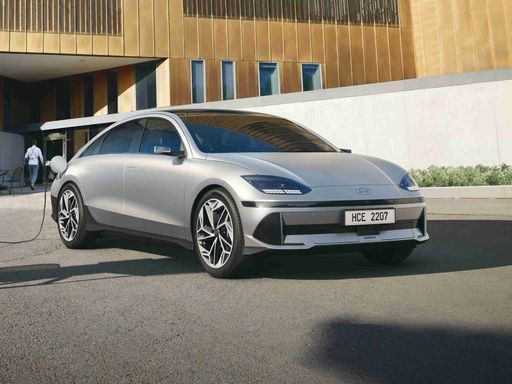 @ hyundai.news
@ hyundai.news
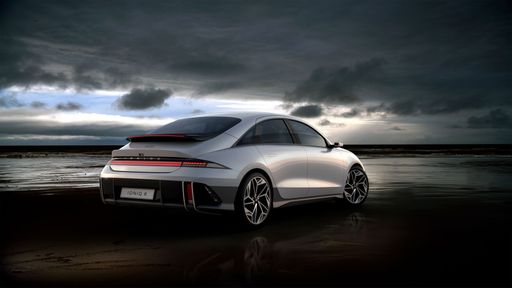 @ hyundai.news
@ hyundai.news
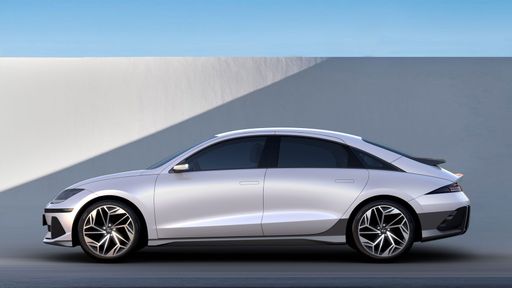 @ hyundai.news
@ hyundai.news
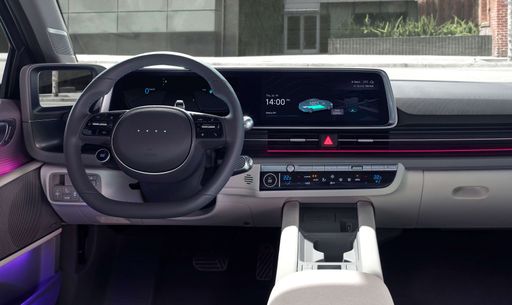 @ hyundai.news
@ hyundai.news
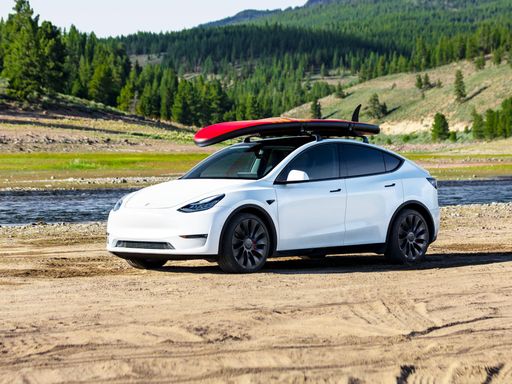 @ tesla.com
@ tesla.com
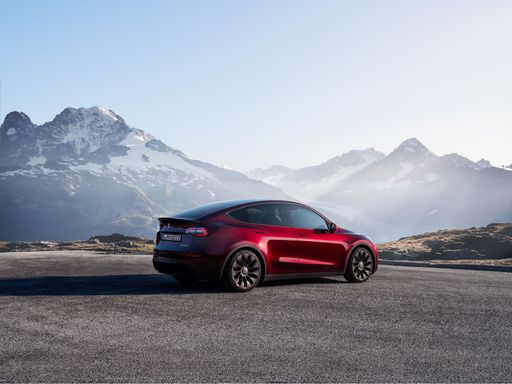 @ tesla.com
@ tesla.com
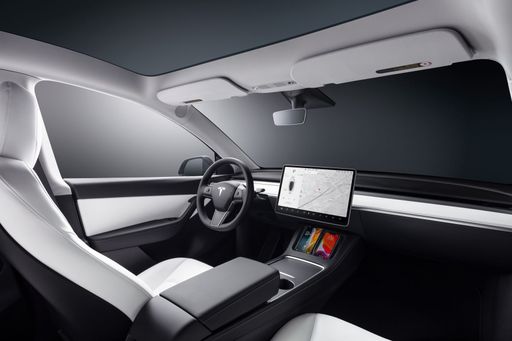 @ tesla.com
@ tesla.com
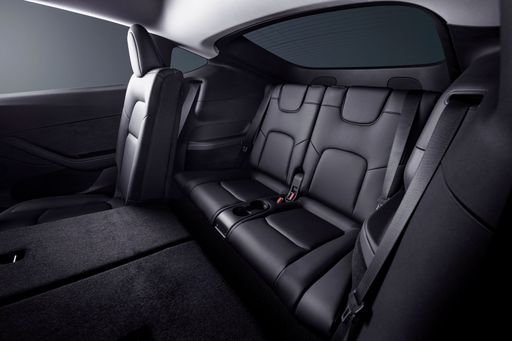 @ tesla.com
@ tesla.com

|

|
|
|
|
Costs and Consumption |
|
|---|---|
|
Price
about 37600 - 55000
£
|
Price
about 38600 - 51400
£
|
|
Consumption L/100km
-
|
Consumption L/100km
-
|
|
Consumption kWh/100km
13.9 - 15.1
kWh
|
Consumption kWh/100km
14.9 - 17.3
kWh
|
|
Electric Range
429 - 614
km
|
Electric Range
455 - 600
km
|
|
Battery Capacity
53 - 77.4
kWh
|
Battery Capacity
62 - 79
kWh
|
|
co2
0
g/km
|
co2
0
g/km
|
|
Fuel tank capacity
-
|
Fuel tank capacity
-
|
Dimensions and Body |
|
|
Body Type
Hatchback
|
Body Type
SUV
|
|
Seats
5
|
Seats
5 - 7
|
|
Doors
4
|
Doors
5
|
|
Curb weight
1850 - 2095
kg
|
Curb weight
1909 - 1995
kg
|
|
Trunk capacity
401
L
|
Trunk capacity
363 - 854
L
|
|
Length
4855
mm
|
Length
4751
mm
|
|
Width
1880
mm
|
Width
1921
mm
|
|
Height
1495
mm
|
Height
1624
mm
|
|
Payload
425 - 430
kg
|
Payload
639 - 660
kg
|
Engine and Performance |
|
|
Engine Type
Electric
|
Engine Type
Electric
|
|
Transmission
Automatic
|
Transmission
Automatic
|
|
Transmission Detail
Reduction Gearbox
|
Transmission Detail
Reduction Gearbox
|
|
Drive Type
Rear-Wheel Drive, All-Wheel Drive
|
Drive Type
Rear-Wheel Drive, All-Wheel Drive
|
|
Power HP
151 - 325
HP
|
Power HP
299 - 534
HP
|
|
Acceleration 0-100km/h
5.1 - 8.8
s
|
Acceleration 0-100km/h
3.7 - 6.9
s
|
|
Max Speed
185
km/h
|
Max Speed
217 - 250
km/h
|
|
Torque
350 - 605
Nm
|
Torque
420 - 660
Nm
|
|
Number of Cylinders
-
|
Number of Cylinders
-
|
|
Power kW
111 - 239
kW
|
Power kW
220 - 393
kW
|
|
Engine capacity
-
|
Engine capacity
-
|
|
Top speed
185
km/h
|
Top speed
217 - 250
km/h
|
General |
|
|
Model Year
2022
|
Model Year
2021 - 2024
|
|
CO2 Efficiency Class
A
|
CO2 Efficiency Class
A
|
|
Brand
Hyundai
|
Brand
Tesla
|
Hyundai IONIQ 6
Introducing the Hyundai IONIQ 6: A New Era of Electric Mobility
The Hyundai IONIQ 6 is more than just a car; it's a glimpse into the future of electric mobility. With cutting-edge technology, impressive performance, and a sustainable design, this vehicle stands as a beacon for the automotive industry's electric revolution. Let's delve into what makes the IONIQ 6 a standout choice in the rapidly growing electric vehicle market.
Performance and Power: The Heart of the IONIQ 6
The Hyundai IONIQ 6 offers two battery options – a 53 kWh version and a more powerful 77.4 kWh variant. Depending on the configuration, drivers can experience a power output ranging from 151 PS to a remarkable 325 PS, highlighting the versatility of this model. With a maximum torque of up to 605 Nm, acceleration from 0-100 km/h is achieved in just 5.1 to 8.8 seconds, catering to both efficiency enthusiasts and those with a penchant for speed.
Efficiency and Range: Long Journeys Made Easy
One of the IONIQ 6's standout features is its exceptional range. Offering an electric range between 429 km to an impressive 614 km on a single charge, it's designed to go the distance. Efficiency is at the forefront, with energy consumption between 13.9 kWh/100km and 15.1 kWh/100km, ensuring that your driving experience remains as eco-friendly as it is enjoyable. All variants boast a CO2 efficiency class of A, reflecting Hyundai's commitment to sustainability.
Design and Interior: Luxury Meets Sustainability
The IONIQ 6's sleek, aerodynamic design is not only visually stunning but also functional, reducing air resistance to maximise efficiency. Offering a hatchback style, it comfortably seats five, ensuring ample space for passengers and luggage. The interior is crafted with sustainable materials, combining advanced technology with an eco-conscious ethos. With a boot capacity of 401 litres, it seamlessly balances practicality with style.
Technology and Innovation: Driving into the Future
Packed with the latest automotive technologies, the IONIQ 6 integrates the future of driving with present-day conveniences. It features a state-of-the-art automatic transmission with a reduction gearbox that ensures smooth driving dynamics. Its advanced driver assistance and safety systems provide peace of mind on every journey, making it an ideal choice for progressive drivers who embrace technology.
Conclusion: A Competitively Priced Electric Option
The Hyundai IONIQ 6 offers an enticing blend of performance, range, and sustainability. With prices ranging from €43,900 to €64,200, it represents excellent value for an electric vehicle of its calibre. Monthly costs are competitively set between €1066 to €1379, while cost per km ranges between 42.7 to 55.2 cents, appealing to cost-conscious customers without compromising on quality or innovation. The IONIQ 6 is a triumph of modern engineering, making it a strong contender in the electric vehicle market.
Tesla Model Y
Revolutionising the SUV Market: Introducing the Tesla Model Y
The Tesla Model Y has emerged as a trailblazer in the electric vehicle market, combining innovative technology with practicality to redefine what an SUV can offer. With its sleek design and exceptional performance, it's no surprise that this model is capturing the attention of car enthusiasts and eco-conscious drivers alike.
Unparalleled Performance and Efficiency
At the heart of the Tesla Model Y lies its impressive range of power and efficiency options. With power ratings from 299 to 534 PS, the Model Y offers something for every driver. It boasts an impressive electric range from 455 to 600 km, allowing drivers to embark on long journeys with confidence.
An advanced lithium-ion battery, with capacities ranging from 62 to 79 kWh, powers this remarkable vehicle. This ensures not only a robust performance but also efficiency, with consumption figures between 14.9 kWh and 17.3 kWh per 100 km, making it a leader in its class.
Advanced Technology and Safety
Tesla is renowned for its technology-forward approach, and the Model Y is no exception. It features the state-of-the-art Autopilot system, designed to assist with driving and to enhance safety on the road. This includes features such as adaptive cruise control, lane detection, and automatic lane-keeping, which work seamlessly to reduce driver fatigue and improve overall road safety.
The Model Y has achieved a superb CO2-Effizienzklasse rating of A, reflecting its zero-emissions performance, thanks to its fully electric powertrain. This aligns perfectly with Tesla's mission of accelerating the world’s transition to sustainable energy.
Design and Comfort
One glance at the Tesla Model Y, and it is clear that it combines utility with elegance. This SUV offers ample space, marked by a large interior and a boot capacity of 854 litres, making it an ideal vehicle for both family and leisure activities. However, the Model Y does not sacrifice aesthetics for practicality, embodying a minimalist and aerodynamic design that stands out on any road.
Inside, the focus is on comfort and connectivity. The Model Y features a panoramic glass roof, spacious seating for five, and a central 15-inch touchscreen that controls most in-car functions. This screen serves as the central hub for navigation, media, and communication systems, further highlighting Tesla's commitment to integrating sophisticated technology.
Final Thoughts: A Game-Changer in Electric SUVs
The Tesla Model Y is more than just an electric vehicle; it is a testament to what the future of driving looks like. From its performance capabilities to its innovative technology and design, the Model Y continues to set benchmarks in the automotive industry.
For those looking to combine sustainability with performance, the Model Y offers such an opportunity in an attractive package. It is not just a vehicle; it's a statement of forward-thinking mobility and advanced engineering, paving the way for the next era of automotive excellence.
